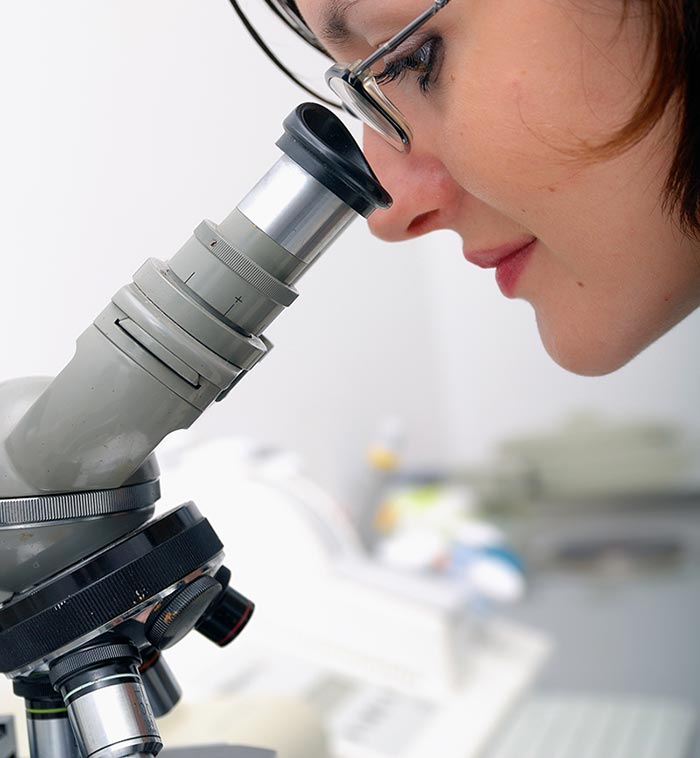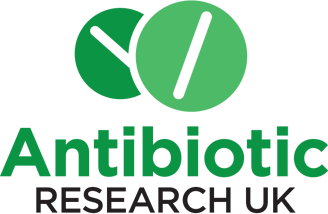Superbugs
Superbugs is a name given to harmful bacteria that have acquired resistance to one or more of the antibiotics used to treat them – not super in a good way, as some people think. Superbug outbreaks are more likely to occur in a healthcare environment, and are causing an increasing number of deaths every year.
With your support, ANTRUK is funding research into the development of new antibiotic treatments. Make a donation today to further our work to help us create a safer future for our children and grandchildren.
It is important to know the difference between colonisation and infection. Many of the bacteria described here live naturally in and on the body of healthy people without causing harm. This is called colonisation. It is only once these bacteria cause disease, for example by reaching a part of the body where they cause damage when they multiply, that it is considered to be an infection. We have ten times as many bacteria in our bodies as cells of our own.
Did you know?
The name ‘superbug’ is somewhat controversial, as they are not ‘super’ in the positive way that some people may think the name suggests. Interview studies with the public suggest that ‘superbug’ means different things to different people.
Help beat the bugs
Dontate today and help fund crucial research into new antibiotic therapies, education programs to help safeguard current antibiotics and patient support for those affected.
Donate today!Infection and sepsis
With multidrug-resistant bacteria, it can take a few tries to find an antibiotic that works, so treatment needs to be administered quickly. If the bacteria spreads throughout the body, it can cause an exaggerated immune response, called sepsis, which can cause organ failure and death. Tens of thousands of people die from sepsis in the UK every year.
Some of the most common superbugs are described below.
Methicillin-resistant Staphylococcus aureus (MRSA)
MRSA is a form of Staphylococcus aureus (S. aureus) that has developed resistance to several commonly used antibiotics and in particular the penicillin class antibiotic, methicillin. S. aureus lives harmlessly on the skin, in the nasal passages, in the mouth and throat and on the groin of around 1 in 30 people and can be passed on by touching, kissing etc. MRSA carried in this way won’t normally harm your health, but it can cause an infection if you have an open wound or your immune system is weak. If MRSA gets into your bloodstream it can begin to colonise areas deep inside the body, such as heart valves, inside bones, surgical wounds and around medical devices and joint replacements.
When the first antibiotics were developed, most Staph infections were susceptible to penicillin and other penicillin-type antibiotics, such as methicillin. During the 1950’s, some forms of Staph developed resistance to these treatments.
MRSA skin infections can cause symptoms such as pain, redness and swelling in the affected area. Deeper infections can cause fever, aches and pains, chills and dizziness or confusion, production of pus and open sores. If a hospital patient experiences these symptoms they should alert their care team immediately as it could be a sign of the infection becoming more serious or causing sepsis.


MRSA in healthcare settings
Serious infection with MRSA happens more often to hospital patients as they are likely to have a wound, stoma or catheter, and their immune system is also likely to be weaker due to illness or injury.
Find out more about resistant infections in healthcare environments.

Prevention
Often, patients expected to go into hospital for an overnight stay are screened for MRSA at their GP’s office, using a simple nasal swab technique. Testing positive may require patients to have treatment to remove the bacteria before attending hospital to avoid getting an infection or passing it on to others. This treatment can include antibacterial cream and shampoo and daily changing of towels and bedding.

Treatment for MRSA
If you acquire an MRSA infection while in hospital you will usually receive antibiotics as tablets or IV fluids for anything up to a few weeks. You may be isolated to prevent the infection reaching others, although visitors are usually allowed.
Carbapenem-resistant Enterobacteriaceae (CRE)
Carbapenems are broad-spectrum antibiotics of the penicillin class, which were initially effective against almost all disease-causing bacteria, and were therefore reserved for the most serious infections. Enterobacteriaceae are a large family of Gram-negative bacteria, including Escherichia coli, Klebsiella, Salmonella, Shigella and Yersinia pestis. These bacteria cause a variety of serious illnesses, including endocarditis, some types of pneumonia and dysentry, as well as late-onset sepsis in newborn babies.
CRE infections, which largely arise in hospitals, are becoming increasingly common across the globe. The bacteria may be resistant to the effects of antibiotics in a number of ways, such as by producing carbapenemases (enzymes that destroy the antibiotic).
These infections are caused by CRE entering the body through contact with infected wounds or stool, dirty hospital wards, skin-to-skin contact or through medical devices. They do not usually affect healthy people, but people with compromised immune systems or those residing in care facilities are at risk.
Treatment for CRE
Some strains of CRE will be susceptible to other antibiotics, but there have been some cases where no treatment is effective. Other treatments may aid recovery, such as draining affected areas (where possible), but without effective antibiotics there is no way to get rid of the infection for good.
If you are taking care of someone with a CRE infection, you are unlikely to be at risk if you are healthy. Ensuring good hand hygiene, particularly when in contact with wounds, medical devices and if helping the patient use the bathroom are particularly important.
Did you know?
Superbugs have been found in Egyptian mummies - long before antibiotics were invented.
Help beat the bugs
Dontate today and help fund crucial research into new antibiotic therapies, education programs to help safeguard current antibiotics and patient support for those affected.
Donate today!Extended-spectrum β-lactamase (ESBL)-producing Enterobacteriaceae
Enterobacteriaceae is a large family of Gram-negative bacteria, including Escherichia coli, Klebsiella, Salmonella, Shigella and Yersinia pestis. These bacteria cause a variety of serious illnesses, including endocarditis, some types of pneumonia and dysentry, as well as late-onset sepsis in newborn babies (source). Some of these bacteria produce extended-spectrum β-lactamases, which are enzymes that can break down carbapenem antibiotics. This means that the antibiotic is not effective as a treatment for such bacteria.
These infections are caused by ESBL-producing bacteria entering the body through contact with infected wounds or stool, skin contact or through medical devices. They do not usually affect healthy people, but people with compromised immune systems or those residing in care facilities are at risk.
Treatment for ESBL-producing bacteria
Some strains of CRE will be susceptible to other antibiotics, but there have been some cases where there are no effective treatments.

Vancomycin-resistant Enterococcus (VRE)
Vancomycin is an antibiotic that is often used to treat Enterococci, a type of bacteria that is often found in the human intestines and female genital tract. While individuals may be colonised with VRE without becoming ill, infections of the urinary tract, bloodstream or wounds associated with medical devices can occur. You are at greater risk of becoming infected with VRE if you have been treated with vancomycin before, or had long-term treatment with other antibiotics. You are more at risk if you have a weakened immune system or permanent medical devices such as catheters, and if you are hospitalised, particularly for surgery.
Treatment for ESBL-producing bacteria
If you have a VRE infection it is likely that other antibiotics will be effective, although you will need to be tested to ensure the right antibiotic is administered. If the infection is caused by a medical device then this may be removed if an alternative is available.

Multidrug-resistant Pseudomonas aeruginosa
Pseudomonas aeruginosa is a common type of bacteria that occurs in the environment. Healthy people are not usually harmed by this bacteria, although if exposed to it in water they may experience ear infections, skin rashes or eye infections. However, people with a weakened immune system or those in hospital may be susceptible to severe infections of the blood, respiratory tract and wounds, particularly if they have a breathing machine or catheter, or surgical or burn wounds.
Treating multidrug-resistant Pseudomonas infections
Pseudomonas infections are becoming increasingly difficult to treat. A specimen from the patient is sent to a lab in order to select the right antibiotic to administer, and an increasing number of cases are not treatable.

Multidrug-resistant Acinetobacter
Acinetobacter is a group of bacteria often found in the environment, within soils and water in particular. All types of this bacteria can cause disease in humans, although Acinetobacter baumannii is responsible for around 80% of them. This type of infection rarely occurs outside of a healthcare setting, and is most common in intensive care units and other facilities for people who are very unwell. The diseases caused range from pneumonia to blood or tissue infections.
This type of bacteria can live on the skin and survive elsewhere in the environment for several days, so attention to hygiene practices is especially important if you are caring for or visiting someone affected.
Treatment for multidrug-resistant Acinetobacter
As suggested by the title, these bacteria are often resistant to the most commonly prescribed antibiotics. Samples may be taken from an affected person in order to ascertain which antibiotic – if any – will be effective as a treatment. In some cases, no effective treatment has been found.
E.coli H30-Rx
E. coli is a common bacteria, often found colonising the human gut. There are many types of E. coli, some of which cause food poisoning and others that cause serious infections, such as cystitis or gastrointestinal infections. H30-Rx is a strain of E. coli that is resistant to fluoroquinolones (a type of antibiotic typified by ciprofloxacillin) and is able to spread from the urinary tract into the blood, which can lead to sepsis.
Treatment for E. coli H30-Rx
Testing samples from the patient will allow clinicians to identify any antibiotics that may be effective against the strain they are affected by. Some strains have acquired resistance to many different antibiotics, meaning that there are no effective treatments for the people affected by them.
Sources for more information
If you’d like to know more, try some of these websites. Please be aware that we are not responsible for any of the information that appears on external websites, and the information may be out of date or relevant to other countries and healthcare systems.
CDC on healthcare-associated infections: this American website includes detailed information about the infections listed on this page and more.
We’re committed to fighting this global health catastrophe before it’s too late. Find out how you can get involved in fundraising or make a donation to help ensure our children and grandchildren can benefit from antibiotics, like we have.
